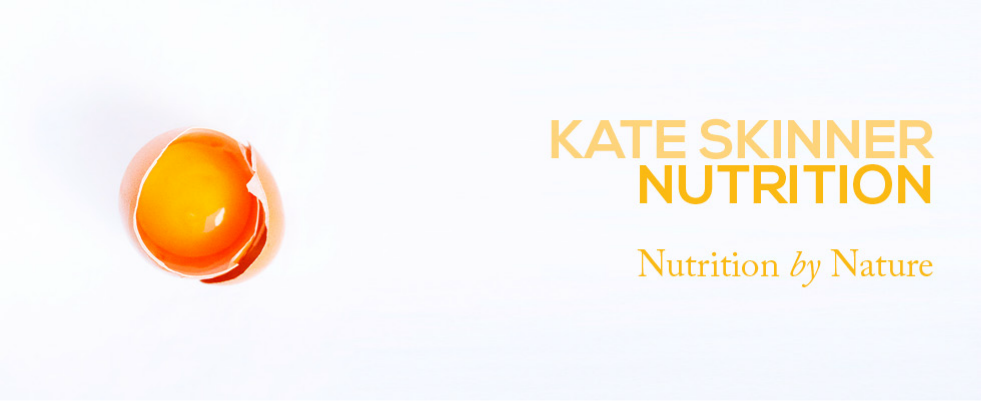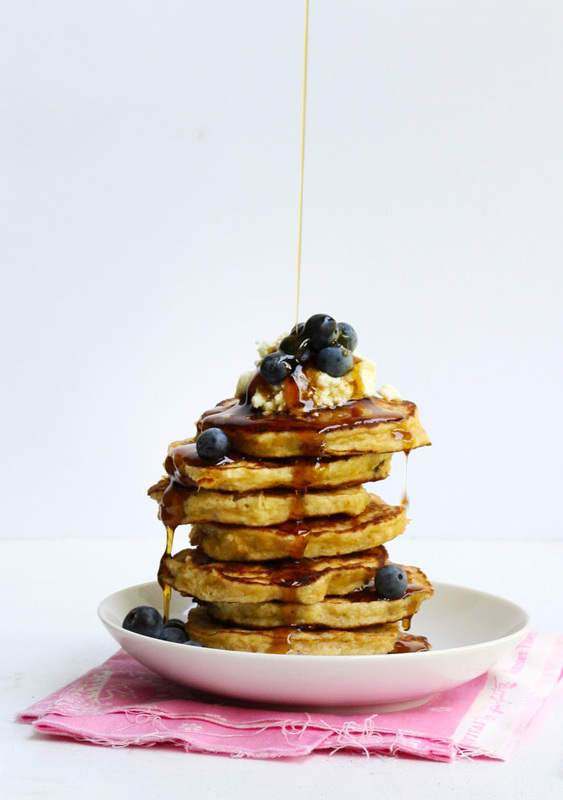You wouldn't necessarily think it, but night time is actually quite a stressful time for the body. Whilst asleep, you essentially 'fast'. Levels of active thyroid hormone (T3) fall and stress hormones such as adrenaline and cortisol tend to peak, often kicking in as blood sugar drops*. So when you wake, your body is actually in a bit of a state of stress and, consequently, low metabolism (lowered thyroid function).
Skipping breakfast (or surviving on black coffee alone) only exacerbates this state. It's really important to get some food in first thing, to curb the stress response, boost metabolism, restock glycogen stores and effectively balance blood sugar from the get-go. Carbohydrates - including sugars - tick all these boxes (carbs restrain the release of stress hormones, facilitate the conversion of thyroid hormone to its active form thereby increasing metabolic rate, and can be utilized to restock glycogen stores), and a meal combining plenty of carbohydrates (such as starch, fruit, fresh fruit juice or natural sugar syrup) balanced with a bit of protein (dairy, eggs, etc) is ideal. Don't forget to include some sodium (salt) at breakfast too, another powerful anti-stress, pro-metabolic nutrient.
*Symptoms of low blood sugar, high nocturnal stress hormone activity and low metabolism/low thyroid include: waking during the early hours of the morning with a racing mind, rapid heartbeat and/or sweat (due to adrenaline peaking); waking once or more to urinate (the body literally 'sheds' water to conserve both salt and sugar); disturbed sleep patterns; and/or lack of appetite in the morning due to elevated levels of cortisol.
So. Pancakes!
Skipping breakfast (or surviving on black coffee alone) only exacerbates this state. It's really important to get some food in first thing, to curb the stress response, boost metabolism, restock glycogen stores and effectively balance blood sugar from the get-go. Carbohydrates - including sugars - tick all these boxes (carbs restrain the release of stress hormones, facilitate the conversion of thyroid hormone to its active form thereby increasing metabolic rate, and can be utilized to restock glycogen stores), and a meal combining plenty of carbohydrates (such as starch, fruit, fresh fruit juice or natural sugar syrup) balanced with a bit of protein (dairy, eggs, etc) is ideal. Don't forget to include some sodium (salt) at breakfast too, another powerful anti-stress, pro-metabolic nutrient.
*Symptoms of low blood sugar, high nocturnal stress hormone activity and low metabolism/low thyroid include: waking during the early hours of the morning with a racing mind, rapid heartbeat and/or sweat (due to adrenaline peaking); waking once or more to urinate (the body literally 'sheds' water to conserve both salt and sugar); disturbed sleep patterns; and/or lack of appetite in the morning due to elevated levels of cortisol.
So. Pancakes!
Banana, ricotta and coconut pancakes
Serves 4
1 cup self-raising flour
½ cup desiccated or shredded coconut
1 tsp bicarb of soda
Pinch salt
1 egg
½ cup mashed banana (from ~1 medium banana)
100g ricotta, plus extra to serve
1 cup milk
25g butter
Maple syrup and blueberries, to serve
Sift flour into a mixing bowl and add desiccated coconut, bicarb of soda and salt. Whisk together egg, ricotta, banana and milk with a fork.
Make a well in the centre of the dry ingredients and add wet ingredients, stirring to combine and beating out any lumps as you go.
Heat a frying pan over medium-low heat and grease with butter. Pour ⅓ cup pancake batter into the pan to create one pancake (you may be able to cook 2 or 3 pancakes at a time depending on the size of your frying pan). Cook until bubbles appear on the surface of the pancake, then flip and cook for another 1-2 minutes until golden. Repeat to use up batter.
Serve with extra ricotta, blueberries and maple syrup.
1 cup self-raising flour
½ cup desiccated or shredded coconut
1 tsp bicarb of soda
Pinch salt
1 egg
½ cup mashed banana (from ~1 medium banana)
100g ricotta, plus extra to serve
1 cup milk
25g butter
Maple syrup and blueberries, to serve
Sift flour into a mixing bowl and add desiccated coconut, bicarb of soda and salt. Whisk together egg, ricotta, banana and milk with a fork.
Make a well in the centre of the dry ingredients and add wet ingredients, stirring to combine and beating out any lumps as you go.
Heat a frying pan over medium-low heat and grease with butter. Pour ⅓ cup pancake batter into the pan to create one pancake (you may be able to cook 2 or 3 pancakes at a time depending on the size of your frying pan). Cook until bubbles appear on the surface of the pancake, then flip and cook for another 1-2 minutes until golden. Repeat to use up batter.
Serve with extra ricotta, blueberries and maple syrup.
Kate is a certified Clinical Nutritionist and offers one-on-one coaching for clients in Sydney Australia, and internationally via Skype. Visit the nutrition services page to find out more about private coaching, and be sure to subscribe via email and follow the Nutrition by Nature Facebook page for blog updates, articles, nutrition tips, recipes and special offers.









